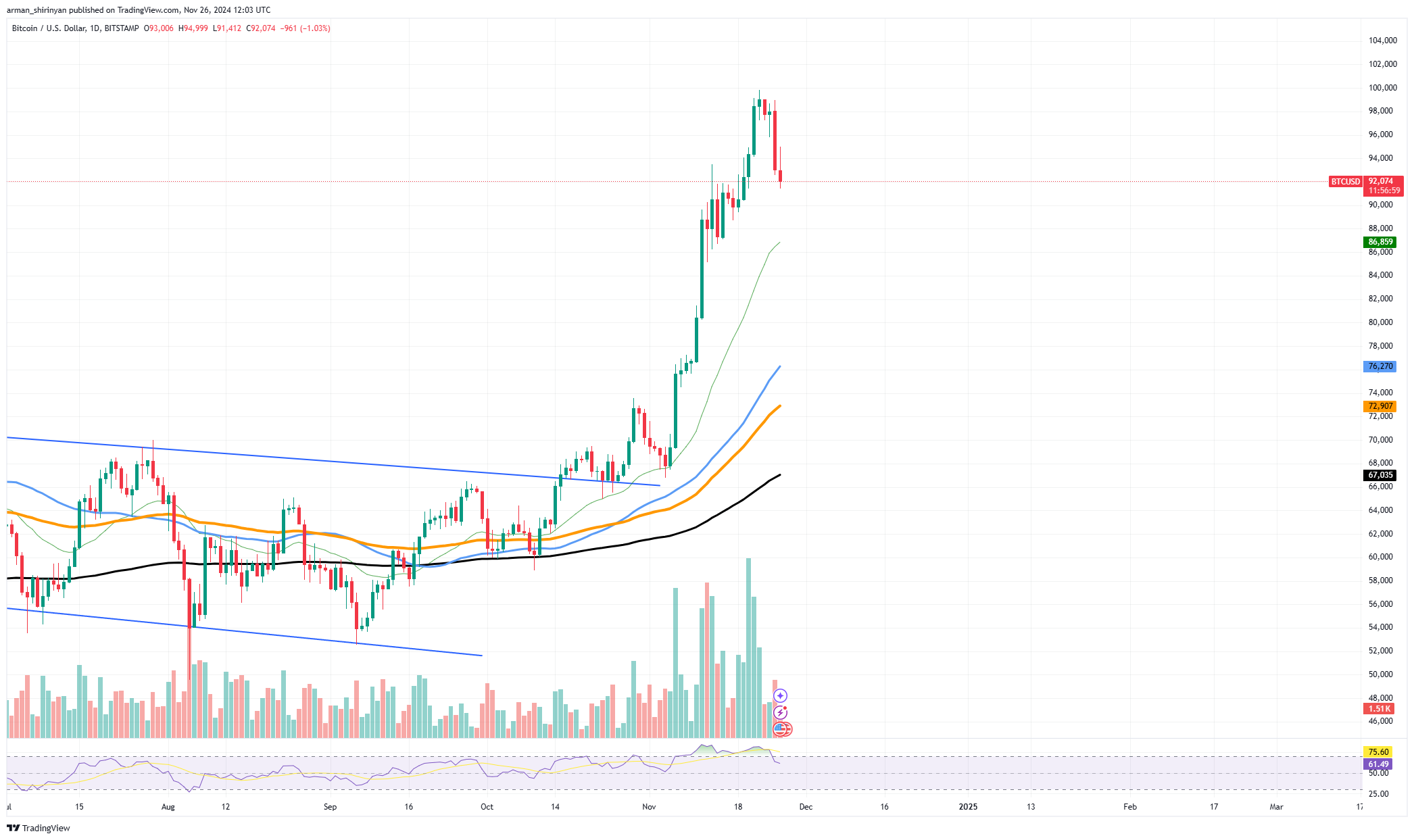Bitcoin has entered a critical phase as its price has fallen precipitously below $92,000 and is in danger of breaking through the $90,000 support level. After a period of steady growth during which Bitcoin almost reached $100,000, there has been a retracement. Nonetheless, it appears from the state of the market that the bears are gaining ground and the bulls are losing it.
Bitcoin’s recent rally seems overextended according to the provided chart, necessitating a correction. A drop from the overbought zone in the Relative Strength Index (RSI) indicates less buying pressure. Trading volume has also begun to decline, which suggests that market enthusiasm is waning. The price is currently getting close to the crucial $90,000 support level, which needs to hold in order to avoid a more significant decline.

The general state of the market may also be to blame for Bitcoin’s failure to sustain its momentum. Investor diversification into other cryptocurrencies is reducing the buying pressure on Bitcoin as its dominance declines a little. Bitcoin still has a lot of promise despite the recent setback. Bitcoin may attempt another rally after consolidating in this range if the $90,000 support holds.
To resume its bullish trajectory and try to reach the $100,000 mark once more, Bitcoin must break through the key resistance levels at $94,000 and $96,000. A breakdown below $90,000, however, might lead to a more significant sell-off, which would drive the price down to $85,000 or even lower.
The 50-day moving average, which is located around $86,800, could be the next significant support in this situation. Institutional investors’ renewed interest and a surge in trading volume are essential for Bitcoin to reach its full potential. Positive macroeconomic news or developments like more widespread use of Bitcoin ETFs or clearer regulations could rekindle optimism and propel the cryptocurrency to all-time highs.
To sum up, the $90,000 support for Bitcoin is a crucial line in the sand. In the upcoming days, market sentiment and outside catalysts will play a major role in determining whether the asset recovers its momentum or undergoes a more severe correction.






